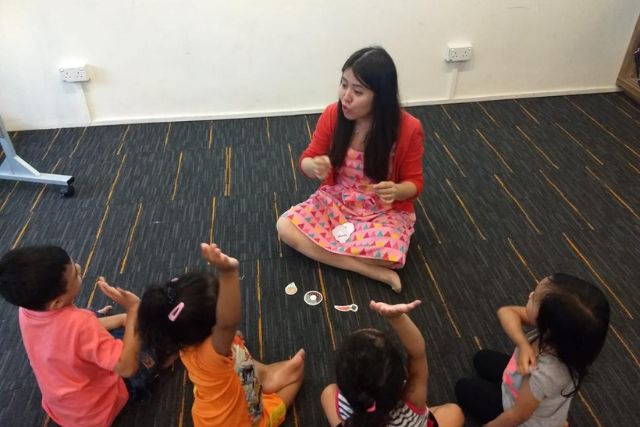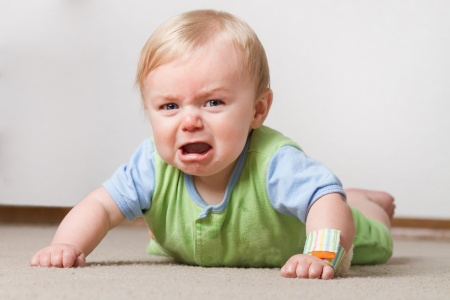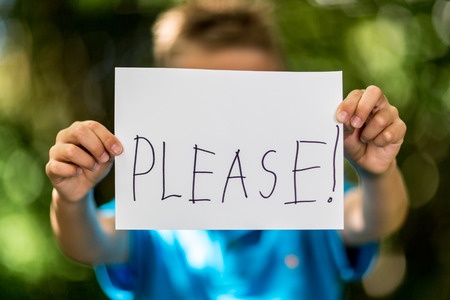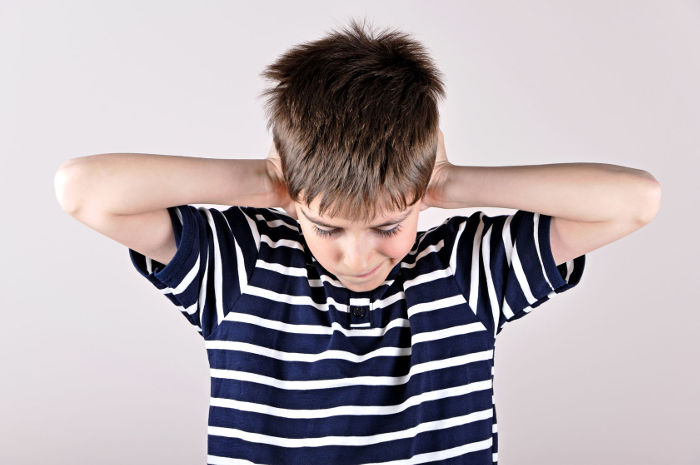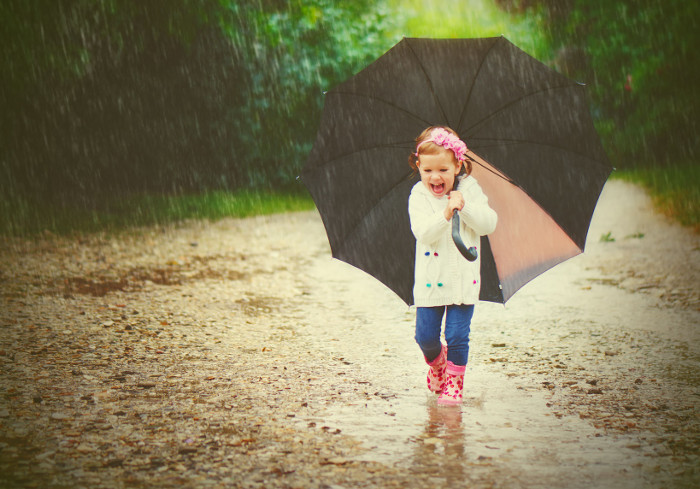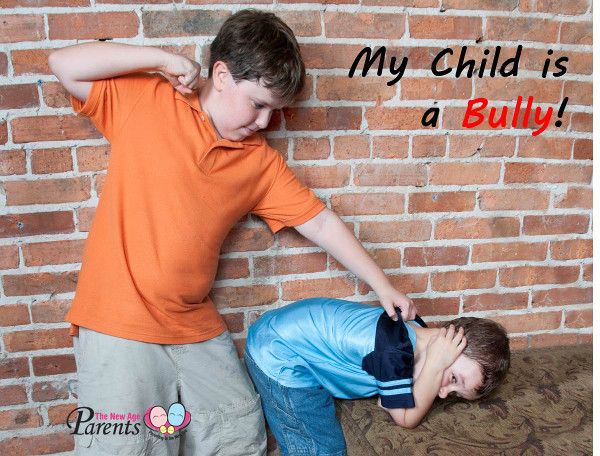What if your child is turning out to be one of the ‘infamous’ kids at school? We highlight possible scenarios and strategies to manage them.

When Your Child Is Not Behaving At School
When your child’s teacher asks to speak to you in private, it usually means only one or two things. He’s been an angel in class, and she wants to compliment you on a job well done and ask you for tips on how to make children behave. But the words most of us wouldn’t want to hear coming out of that teacher’s mouth are… “I’m sorry, but I must tell you that your child…” Immediately you think “Oh no, what has he done now?”
![]()
My child is… talking back to the teacher
Your child’s teacher asks him to keep his toys and start working on the class activity. “No” is his flippant reply. The teacher sees red and confiscates his toys or denies him of play time. Or your preschooler refuses to do the craft activity as directed and argues with the teacher about doing it a different way.
Jane Nelsen, Author of Positive Discipline states that when children talk back, what they are expressing is anger, frustration, fear, or hurt. Talking back could be your child’s way of getting attention from the teacher, or protesting against what he feels is an unfair request. For younger children, it is just their way of asserting their personal preferences and rights, or a reaction to feeling out of control of a given situation.
TRY THIS:
- Set clear limits ahead of time
Talk to your child about what kind of behavior is okay and not okay in the classroom. Explain to him the need for such behavior, e.g. “Teacher needs you to pay attention in class so that you will know how to do the homework later on.” Or “When you say ‘No’ or fold your arms, it looks very disrespectful and it might hurt your teacher’s feelings.”
- Focus on the message behind the tone
Find out what your child is thinking or feeling when he is talking back to the teacher. Perhaps he is angry with a decision she has made or frustrated that she can’t see his point of view. If you begin with an argument, What’s wrong with you? How can you talk to your teacher like that?, chances are his walls will immediately shoot up. Instead of taking a confrontational approach, seek to understand what he meant by what he said, and why he said it. Next, help him to think about how he could have made his point in a more respectful manner.
![]()
My child is… hurting his friends
It can be a huge shock to any parent when you realise that your child is a bit of a classroom bully, biting or hitting his peers in the classroom – whether it’s for fun or as a reaction to their behavior.
Biting is common among preschoolers, it could be their reaction to feeling frustrated, cornered, hurt, curious or excited. Primary school children would probably not struggle with this issue as much, as they would have learnt how to regulate their behavior better by then. Hitting, however, is a habit that may take more time to outgrow, especially when your child is mad about something or someone.
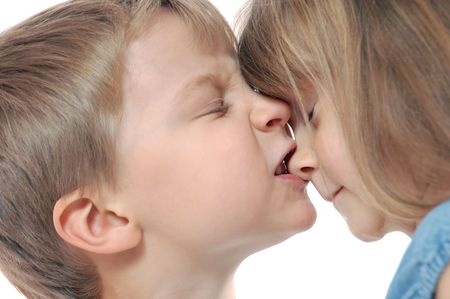
Your first priority is to establish the reason behind the physical behavior. Is your child biting or hitting as a reaction to something, or as a means to elicit a response? Is he being overstimulated in the classroom or situation, giving rise to his higher level of aggression? Does she know why hurting her friends is wrong?
⇒ Related Read: Why do children bite?
TRY THIS:
- Set clear boundaries about hurting others
Whether at home or in school, and determine the consequences if your child acts out in this area. Since the issue is one of physical violence, it really doesn’t make sense to punish your child with any physical discipline. After all, you’re trying to send the message that hurting others is wrong. Instead, try the approach of time-out or taking away your child’s privileges, should he cross the line again.
- Talk about your child’s feelings
What led him to punch his buddy or led her to bite her friend? What can he do if he encounters similar feelings in the future? Help your child to think about alternative ways to cope, e.g. teaching him to say “I don’t like this game. Can we play another game?” or “I don’t like it when you tickle me. Please stop!”
![]()
My child is… telling lies
Children lie at any age – well, to be honest, even we adults do tell the so-called “little white lie” once in a while, don’t we? The reasons for lying, however, stay roughly the same. We all prefer our version of the truth every now and then – to avoid getting the punishment we deserve (or that we think we don’t deserve), to protect someone we love, or simply because the lie sounds better than the truth.
Children often create imaginary friends or worlds, and may be genuinely confused between fiction and reality at times. Whilst most primary school children and tweens would be growing out of this phase, they may still have valid reasons for the lies they tell, especially when group dynamics and social norms come into the equation.
Other than as an expression of anxiety, children do tell lies for various reasons, adds Esther Yeo, Founder of LEAP SchoolHouse and Curriculum Director, LEAP EDUCATION GROUP. She lists down 4 tips for parents:
1. When it is not a lie at all
Surprising as it may seem, young children are not always able to contextualise what they are trying to verbalise. For example, they may see a friend being hurt by another child through a fight in school. When verbalising to an adult, they might say that they were the ones that were hurt in the fight and not the friends who were involved in the actual tussle.
2. Seeking attention
To pander for more eyes on them, sensationalising events becomes an avenue for children to get adults to keep them under their radar.
3. ‘Because mummy and daddy said so’
Children listen to what adults have to say and in particular, the words from mummies and daddies mean the most to them. Their young minds can then look at things differently and perceive non-truths as perfectly acceptable.
4. Avoid coming down too hard on a young child who is caught telling her first few lies
While you certainly should not condone the lying, understanding the circumstances and reasons for the lie is vital to help your child process through why and how she could have responded differently. Recognise that your child may not even be intentionally covering up the truth, but simply having trouble distinguishing fantasy from reality.
⇒ Related Read: Why do children lie?
TRY THIS:
- Set a good example for your children by always telling the truth
Even when it is inconvenient. For example, don’t lie about your small-sized four-year-old’s age just to get him free entry into the cinema. Explain the importance of truth-telling and honesty to your children, instead of just demanding these standards of them.
- Recognise that your child has reasons for telling the lie
And do take these reasons into consideration as you mete out appropriate consequences for his lie. Speak to your child’s teacher to find out the context if he is caught lying in school.
- Focus more on the importance of truth than the problem of lying
For young children, assuring them that you will not punish them if they tell you the truth about a certain situation can be a good way of demonstrating how highly you value the truth. If your child is lying chronically about many things, do seek professional assistance. While we often wish to trust our children wholeheartedly, it would be best to also maintain an open communication with their teachers to get the full picture before making conclusions.
![]()
My child is… throwing tantrums in class

Parents often think that their toddler will grow out of the “terrible twos” phase and straight into maturity, but that’s often far from reality. Temper tantrums or emotional outbursts may continue well into the primary school years and even the pre-teen years, although they may come out differently. A ten-year old is more likely to slam her room door and scream hateful words, while a two-year old may writhe on the floor, kicking and crying.
In class, your child may react violently to a classmate’s teasing, a perceived injustice from the teacher, or to losing in the class quiz. She may show her temper by shouting, crying, slamming the table, throwing things, destroying school property or just flat out refusing to obey the teacher. As a parent, you may feel helpless to teach her a better way to respond.
TRY THIS:
- Stay calm
If your child is still reeling from the emotions that are out of control, talking about the problem may be far from helpful. Sometimes, the best thing is to wait until the storm has blown over. You can talk about things when both of you are in a better frame of mind.
- Seek to understand why he was upset
Help your child to understand what he was reacting to, and to consider how he could have responded better to the stressful situation.
- Come up with a plan together with your child
A plan that he can fall back onto the next time he is in a similar situation. E.g. Let the teacher know when he is upset with a classmate, and ask to meet the teacher after the class to talk more about it. Then hold him accountable to it, with the help of his teacher.
These issues are part of your child’s growing up experience, as he learns to adapt to different people and situations. With proper guidance and the opportunity to practice what he has learnt, and with parents and teachers working closely together to facilitate change, you can empower your child to relate better to his teachers, peers and the school system.
⇒ Related Read: How to understand your toddler’s tantrum better
By Dorothea Chow.
* * * * *
Like what you see here? Get parenting tips and stories straight to your inbox! Join our mailing list here.
Want to be heard and seen by over 100,000 parents in Singapore? We can help! Leave your contact here and we’ll be in touch.















